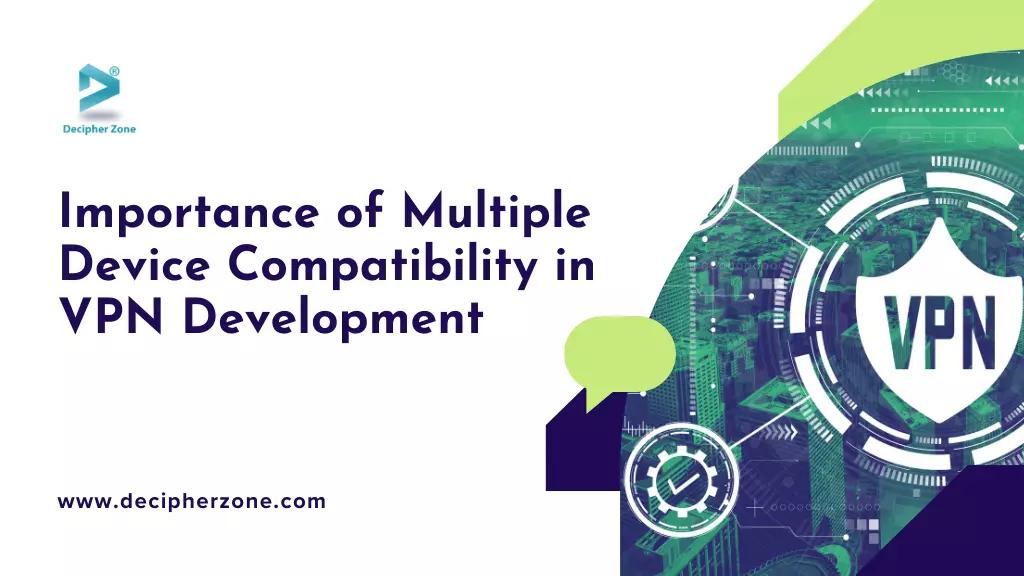Since the internet has become an integral part of our daily lives and malicious threat actors integrate emerging technologies in this digital era to launch sophisticated cyberattacks, the need for privacy and security and bypassing geo-restrictions has never been more critical. Virtual Private Networks (VPNs) have emerged as a popular solution with innovative functionalities for safeguarding online activities; however, the effectiveness of a VPN hinges on its compatibility across multiple devices and how easy it is to set up.
Therefore, VPN developers who work with JavaScript based on proprietary code and sensitive data must prioritize seamless and secure ways to set up a VPN and its compatibility across multiple devices in the VPN app development process.
The following are some reasons VPN developers must consider in the app development process to ensure multi-device compatibility and non-stressful VPN setup.
1. Eliminate technicalities
Users mustn’t go through rigorous processes to set up their VPNs; you must endeavor to implement a one-click connection feature that allows users to connect to the VPN with a single tap, reducing the complexity of multiple steps. A one-click connection must integrate intuitive and straightforward user interfaces that guide users through the setup process with clear instructions, minimizing technicalities.
2. Catering to a heterogeneous user base
The internet has penetrated nooks and crannies; people surf the web through diverse devices, such as smartphones, tablets, laptops, and desktop computers; since each device has its unique operating system and specifications, a VPN must support multiple devices to enable a broader audience to utilize its services. Enhancing this inclusivity is crucial for VPN providers who aim to capture a diverse user base and cater to different preferences and needs.
3. Seamless user experience
No one cherishes a disjointed experience; you may want to switch from your PC to your mobile phone while browsing the net. You don’t have to go through rigorous processes and frustrations because of the simple task of switching from one device to another.
A VPN must be compatible with these devices. Multi-device compatibility allows users to maintain their VPN connection and security settings regardless of the device, enhancing overall satisfaction and loyalty to the service.
4. Enshrining security and privacy
The fundamental function of a VPN is to ensure security and privacy, especially with the heightened level of cybercrimes. If a VPN is compatible with various devices, it can provide consistent security features across all platforms.
This uniformity enhances protection from potential threats, such as data breaches and cyberattacks, regardless of the device. Moreover, with the rise of remote work with employees using personal devices for professional tasks and connecting to insecure public Wi-Fi networks, having a VPN that secures all devices is essential for protecting sensitive information.
5. Adaptability and accessibility
Enabling multi-device compatibility allows users to choose their preferred device for online activities. Whether at home, in the office, or on the go, users should seamlessly connect to the VPN on any device. This convenience is crucial for users who travel frequently or work in different environments.
A VPN that is easy to set up and access on multiple devices allows users to maintain their privacy and security 24/7.
6. Pre-formatted profiles
It will provide pre-formatted VPN profiles for popular servers, users don’t need to go through hectic protocols and detailed settings to select a server.
7. Competitive advantage due to enhanced performance
Multi-device compatibility can boost competitive advantage stemming from improved performance. Optimizing VPNs for various devices can offer better speeds and reliability.
VPN providers must distinguish themselves to attract and retain customers. Optimization is crucial for live streaming and gaming and ensures that users experience minimal lag and buffering.
8. Easy-to-understand manuals
VPN users cut across different strata of life; setting up a VPN mustn’t be rocket science or something you need a degree from Harvard to accomplish. The manual or in-app tutorials should be concise, explaining how to set up and use the VPN and helping users understand the process better.
9. Around-the-clock customer support
It must enable around-the-clock customer feedback. Offer comprehensive customer support, including chatbot-enabled live chat or a robust FAQ section, to help users navigate difficulties during setup. By emphasizing multi-device support in marketing efforts, VPN providers can position themselves as versatile and user-friendly options in the marketplace.
Conclusion
App developers can deploy the strategies above to make VPNs easier to set up, significantly enhancing the user experience and making VPN setup more accessible to a broader audience. As the digital landscape continues to evolve, VPN providers must prioritize compatibility across various devices and operating systems to meet the diverse needs of their users.
By integrating multi-device compatibility and enabling a non-stressful VPN setup, VPN app developers can attract a broader audience and ensure their services remain relevant and effective in an ever-changing technological environment.

